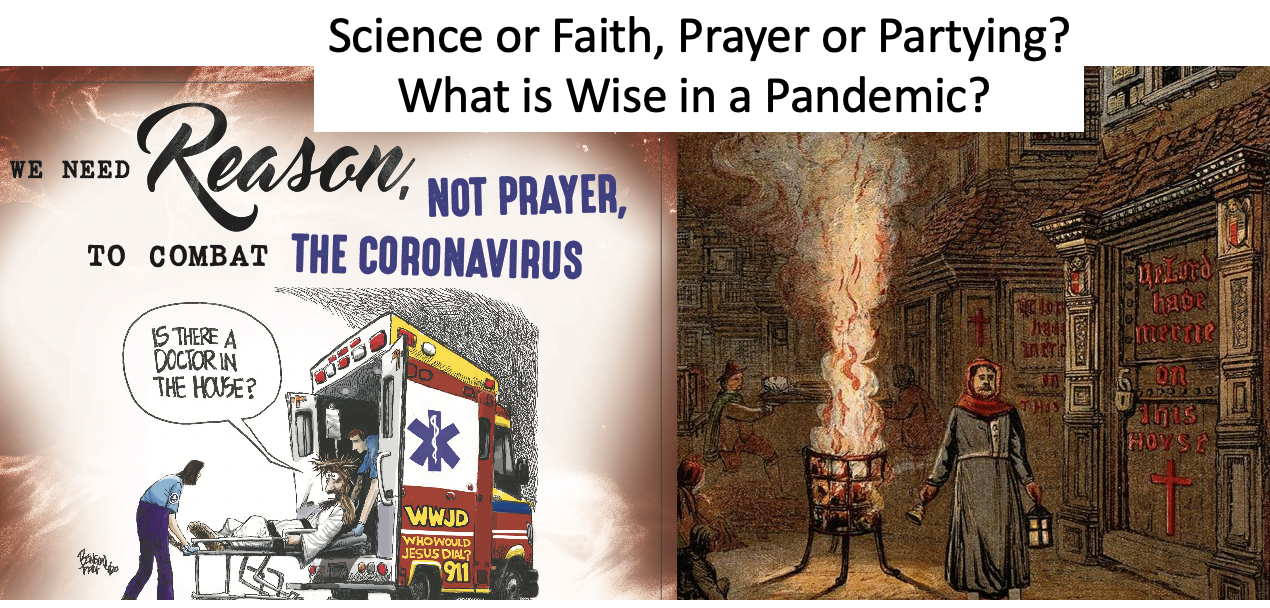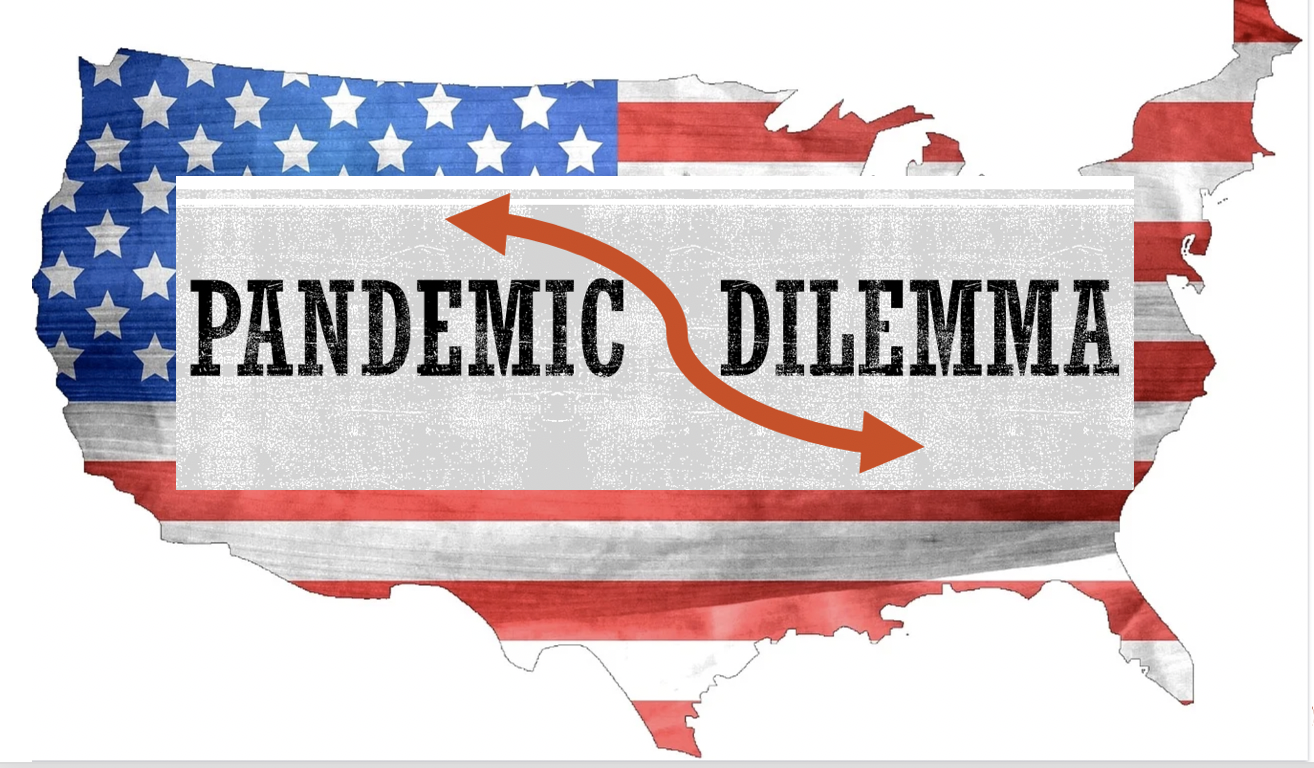The divide between religious and non-religious people is highlighted by the pandemic. At a recent “Freedom Rally” in Fresno, a woman said she was not afraid of the virus. If she gets sick or infects someone else, she said, it is “all part of God’s plan.”
This represents a dispiriting theology. It is not God’s will that people die from this disease. Scientists know how to stop its spread. It makes no sense to ignore science and blame God.
The conflict between faith and science rages on. Some turn to prayer. May 14 was an international day of prayer, celebrated by Pope Francis and Muslim leaders. Two months ago, President Trump declared March 15 as a national day to “pray for God’s healing hand to be placed on the people of our Nation.” May 7 was another National Day of Prayer. At the May 7 event at the White House, no one wore a mask, including the choir.
In response to all of this praying, the Freedom From Religion Foundation declared May 7 as a National Day of Reason. They claim the National Day of Prayer is unconstitutional. They argue, “irrationality, magical thinking, and superstition have undermined the national effort to combat the COVID-19 pandemic.”
Pandemics have often prompted religious turmoil. In ancient Athens, a terrible plague turned people away from religion. The historian Thucydides reported that at first the Athenians asked the gods for help. But when prayer had no effect, the people saw the futility of religion.
As the disease spread, general lawlessness broke out. People expected to die soon, so they focused on enjoying themselves in the present moment. They gave up on honor and were not worried about punishment for crime. Thucydides explained that there was no longer any fear of the gods or of the laws.
Something similar occurred during the Black Death. The Italian poet Boccaccio recounts that people made merry and drank themselves silly, since death appeared inevitable. People generally disregarded “the reverend authority of the laws, both human and divine.”
The good news is that our pandemic is less severe. The Athenian plague killed one-third of the population. The Black Death killed over half of Europe. Things are better today thanks to modern science. We know how to prevent and treat the bubonic plague. Scientists also know how to prevent COVID-19.
But will faith wane in this crisis as it did in Athens and Italy? When prayer proved ineffective, some people gave up on religion — but not all. Religion is resilient, as recent data show. The Pew Center reports that the COVID-crisis has strengthened the faith of people who were already religious.
But the pandemic has not driven the nonreligious back to religion. Indeed, a growing religious exodus is already well underway. A fourth of all Americans are not religious and a third of those under 40 are nonreligious.
Religion can’t compare to science when it comes to understanding disease. But a religious attitude may be useful for creating solidarity and compassion. History shows that in a pandemic people may selfishly focus on short-term pleasure. But the turn to selfish individualism undermines cooperation and helps the disease to spread.
If religion encourages people to cooperate, care for the suffering, and work to prevent disease, then science and religion can work together. A carefree attitude of partying like there is no tomorrow will undermine cooperation. But the same is true when religious people refuse to cooperate in the name of religious liberty.
In a free country, of course we have the right to pray or to party. But we should be smart about exercising our rights. We can party safely and with social distance. We can also pray, while loving our neighbors and wearing masks.
Thucydides once said that good sense is undermined by haste, passion, and a narrow mind. We do better when we broaden our perspective and think more carefully about science, history, and ethics. We also need a more sophisticated theology that does not blame God for human failure. We must think about the impact that our choices have on others. We should acknowledge that science actually works to save lives. And whether we pray or party, let’s do it wisely.




